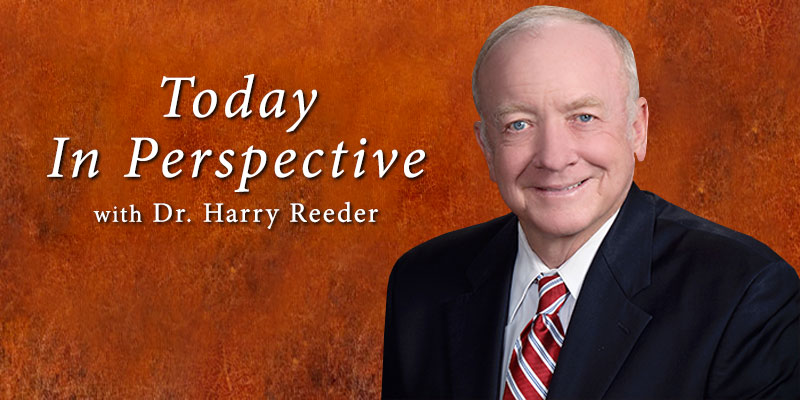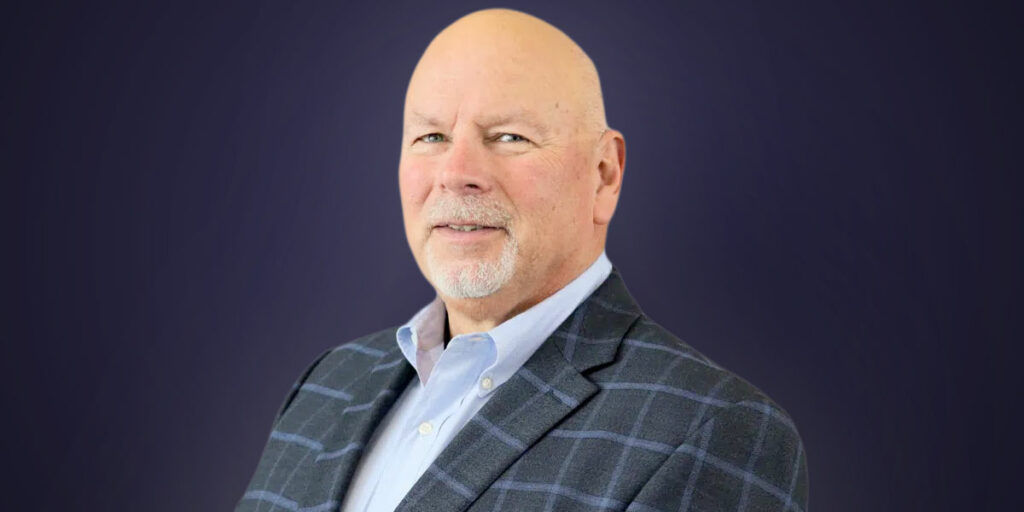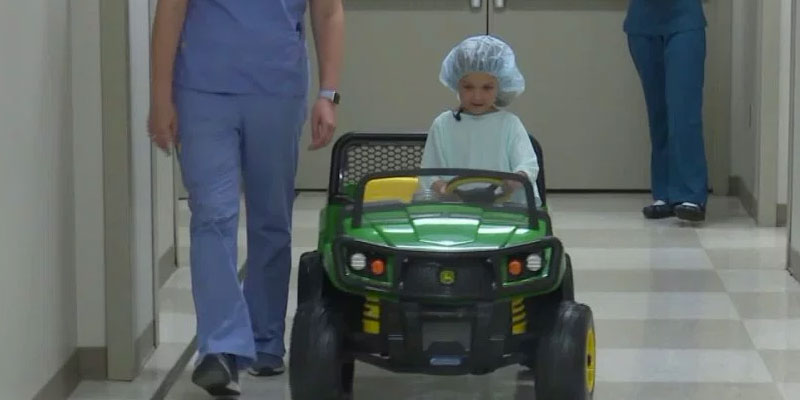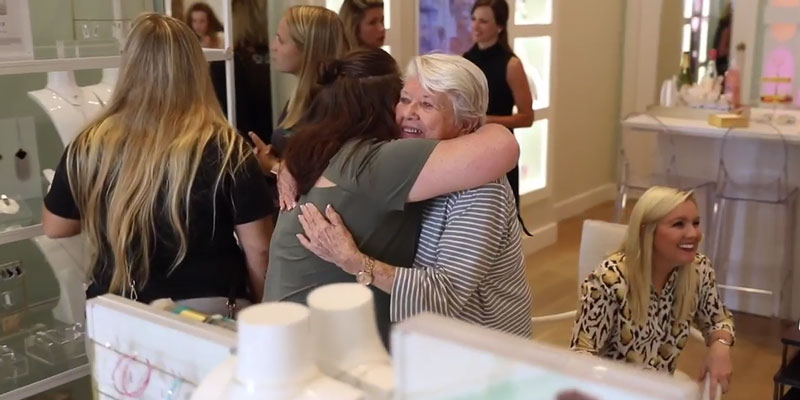
Listen to the 10 min. audio
Read the transcript:
TOM LAMPRECHT: Harry, I want to take you to a story which our friends over at BreakPoint have also covered. There is a new book called “Being There: Why Prioritizing Motherhood in the First Three Years Matters.”
It’s written by a New York psychoanalyst by the name of Erica Komisar. She has some interesting statistics and some of them are rather alarming, including, she says, the number of kids hospitalized for eating disorders have increased 119 percent in the last decade and she points to the fact that mothers are absent.
DR. REEDER: She also goes into some of the areas of, “behavioral disorders.” She goes into the unbelievable rise of suicide among teenagers. The statistics are startling.
Clearly, from her guild of being a psychoanalyst, she has amassed this analysis that has taken place over decades and she finally has just come out, “Look, I’m just going to tell you the truth. Particularly, the first three years, the mother has to be there. She just has to be there,” with the full realization that, in our culture today, it is unbelievable.
This is my opinion, here at this point – she doesn’t say this – but I believe the tax structure in our government to support a bloated and runaway authoritative government has basically robbed most families of the notion of, “Can we afford for the mother to be with the children during those crucial nurturing years?” and, instead, “Nope, got to put her to work.”
And if you take the average salary of women in the workforce, you will find that it directly matches the increased amount of money that is going to the government since the 1940s. The two-income has to be the norm and you can’t make any principled decisions.
“Can my wife work outside the home?” Absolutely, she can. Go read the Proverbs 31 woman and there is no doubt of the “work outside the home opportunity for women.”
However, the point is, if I get married and if I have children, do I have an ethical obligation of what a father is supposed to do and what a mother is supposed to do? The consistency of the Christian world and life view says this: The father is responsible to provide in such a way that the mother is free to nurture.
I love that, at the moment of our covenantal baptisms, Tom, the father names the child and the blessing, hands me the child, we place the sign of the covenant, enfolding the child into the covenant and affirming the promises of God, “I will be a God to you and to your children after you,” and then I hand the child to the mother, affirming this primary role of nurturing.
That doesn’t mean the father is not involved, but the father cannot replace the mother. There’s no way. A father’s love and a mother’s love are different.
There was an interesting study one time, Tom, which I found amusing but, yet, troubling at the same time. We spent, literally, millions and millions of dollars on a study and the final verdict was this: Two mature adults in a home is crucial for the well-being of the nurture of the children in that home.
Now, notice how they painfully stayed away from saying, “a father and mother,” just “two mature adults,” in order to accommodate the mythical notion that a same-sex marriage can provide a healthy home.
It cannot and it won’t because that’s one of the reasons that I continue to speak against this fabrication of same-sex marriage, because I do not want to consign the next generation of children to a home in which there is likely not only not a father properly functioning, but you don’t have a mother properly functioning.
A child needs a father and mother and that is exactly what this study and research affirms – that you need both.
By the way, in that same study, they noted another thing: that fathers and mothers, when they discipline, reprove or correct – that is negative or positive – that the mother adopts, instinctively, a different physical posture than the father.
The mother almost always will either stand or sit beside the child and speak to the child, usually, with their arm around them. The father almost always stands in front of the child, eye-to-eye and speaks to the child. That’s what fathers do. Fathers have a corrective style that is related to what a father can provide.
I remember when I was going through a very, very painful reset of a broken arm and I can remember my dad, at the end of the bed, saying to me, “Son, you can do it.” My mother, beside me, encouraging me that I can do it. Both were necessary.
I needed that and, in many times in my life, I have remembered that when I have faced challenging situations and I can still see my father saying, “Son, you can do that,” and I still feel the calmness of my mother right beside me, “Son, I’m with you.”
Those are the things that they provide. That is what Dr. Erica Komisar, this New York psychoanalyst, is affirming, particularly in the opening three years.
It is amazing, most of the ethical commitments of a child and their world and life view are embraced by age 5. Most of their perspectives in life, and how they view life and how they embrace life is affirmed in the opening 3 to 5 years of a child.
We do tutoring and we purposefully send hundreds of our members into urban schools to tutor but we say, “Please deploy them under the age of 8 because that’s when tutoring has its greatest effect.”
That doesn’t mean it doesn’t work afterwards, but that’s when it has its greatest effect. These highly impressionable initial years are crucial in the life of a child and the notion that a woman who is the mother is a moveable quantity – that is, she can walk away and it has no effect or she can stay it may or may not have an effect – is absolutely ludicrous.
There is no one who can replace the mother in the life of the child. No one. The woman’s gifts and unique abilities are irreplaceable. Can she work outside the home? Absolutely, but the question is not what can you do, but what should you do?
Therefore, fathers ought to do everything they can, not only to be engaged as a father in bringing your child up in the nurture and admonition of the Lord, but also doing everything you can to make sure that your child has the presence and availability of that indispensable ministry and unique gifting that a mother brings to the task and the opening years are absolutely crucial.
Therefore, I am grateful that she has affirmed it. I am grateful that Dr. Komisar has had the courage – because, believe me, she is being targeted. And I am not surprised that it affirms Biblical truth once again that there is a glorious blessing through a father’s leading love and a mother’s nurturing love in the life of a child.
There is no substitute for them and thank God that he has given us direction as to how to establish not only a healthy marriage – one man, one woman for one life – but healthy families where fathers provide the environment of security and stability and a mother provides the instruction of kindness from her tongue that has lifelong effects at the very initial stages of life in the life of every child that God has entrusted to that family.
Dr. Harry L. Reeder III is the Senior Pastor of Briarwood Presbyterian Church in Birmingham.
This podcast was transcribed by Jessica Havin. Jessica is editorial assistant for Yellowhammer News. Jessica has transcribed some of the top podcasts in the country and her work has been featured in a New York Times Bestseller.
Podcast: Play in new window | Download
Subscribe: RSS











